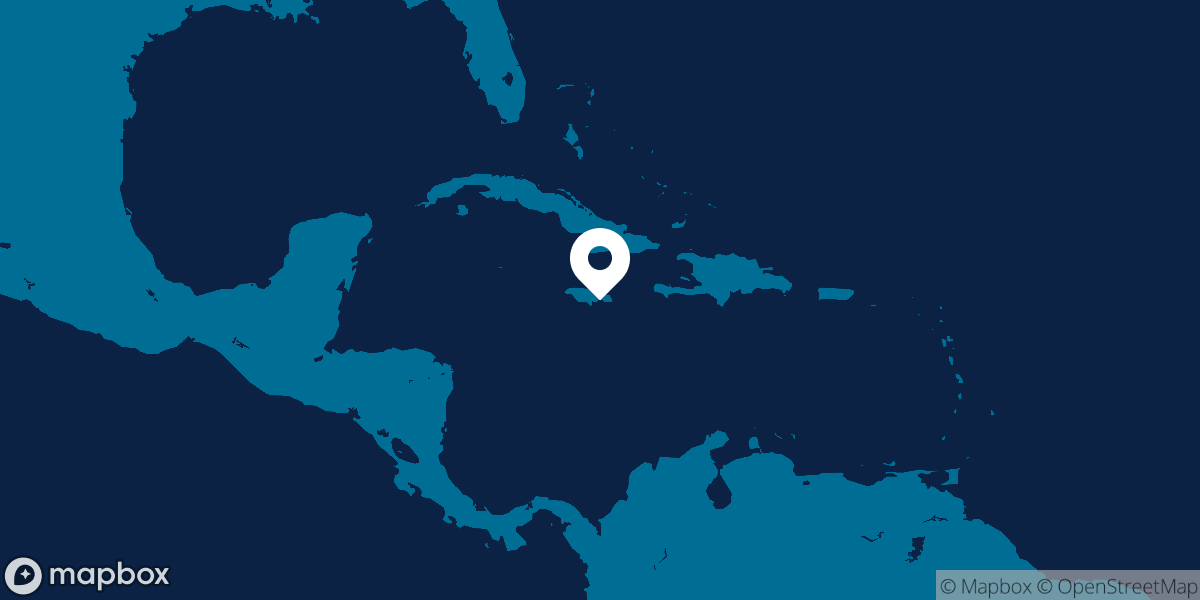Key Information:
National Fisheries Authority
Maritime Authority of Jamaica
Ministry in charge:
- Ministry of Science, Energy, Telecommunications and Transport
Coordination team:
- Maritime Authority of Jamaica
- The National Fisheries Authority
- The National Environment and Planning Agency
- The Jamaica Defence Force Coast Guard
- Port Authority of Jamaica
- National Solid Waste Management Authority
About:
Jamaica is a tropical maritime island in the Caribbean Sea, situated about 145 km south of Cuba and 161 km southwest of Haiti. Jamaica is strategically located in the Western Caribbean lying between the Cayman Trench and Jamaica Channel on the main shipping routes to/from the Panama Canal.
Jamaica has been a member of the International Maritime Organization since 1976 and is a party to all the mandatory IMO instruments.
The Maritime Authority serves as the focal point for the IMO in Jamaica and is responsible for the implementation of the various IMO instruments. The Maritime Authority is a statutory corporation that falls under the Ministry of Science, Energy, Telecommunications, and Transport, which determines the policy objectives for the sector.
Ports in Jamaica:
There are eighteen ISPS-certified ports in Jamaica that engage in international trade.
There are five main operational ports: the Port of Kingston, Port of Montego Bay, Port of Ocho Rios, Port of Falmouth, and Port of Port Antonio. The Port of Kingston is the busiest of the ports, primarily due to its location on the island and consists of three terminals. The port of Kingston in Jamaica boasts the world’s seventh-largest natural harbour and is located at the intersection of two major intermodal trade routes.
Kingston as a large transshipment port serves cargo vessels and domestic imports and exports; but also accommodates fishing vessels for Port Royal, Greenwich Town, Ray Town, and Hellshire fish landing sites.
There are cruise/passenger ports at Montego Bay, Falmouth, Ocho Rios, and Port Antonio. The port of Montego Bay is in the second city of Jamaica and its facilities include a cruise ship terminal. The port of Ocho Rios consists of a dry bulk cargo pier and a cruise ship pier while the port of Falmouth which was constructed to accommodate cruise ships is new, having had its first ship call in February 2011. The recently opened Port Royal cruise ship terminal is a new port in Jamaica that offers a floating pier solution for one mid-sized ship. Additionally, bauxite which is a commodity exported from Jamaica is mainly done from Port Rhodes, Rocky Point, Port Esquivel, and Port Kaiser.
Regarding Jamaica’s fisheries sector, there are several areas from which fishing vessels depart and return to land their catch. There are 142 fishing ports designated for the purposes of registering vessels as their port of origin under the Fisheries Regulations, 1976. These fishing ports vary in capacity and infrastructure with only a few having adequate landing, handling, and market facilities. The largest of these are Old Harbour Bay, Rocky Point, Whitehouse, Black River, Parrotee, Manchioneal, Montego Bay, and Ocho Rios. A suitable designated port is currently being sought to fulfil Jamaica’s plans to accede to the Port State Measures Agreement (PSMA) to assist in curtailing IUU fishing activities.
Fisheries:
The Artisanal Fishery is the predominant fishery in Jamaica and is an open-access, multi-species fishery. The dominant gear used is the Antillean Z-Trap, while other gears such as gill nets, scoop nets, push nets and so-called China nets, handlines, short longlines, trolling lines, and drop lines are used to a lesser extent. Spear guns have become more popular over the last decade. Since the latter part of the 1980s artisanal fishers have begun to use scuba and hookah (compressor) gear to harvest conch, lobster, and finfish.
The Industrial Fishery is made up of steel-hulled vessels generally of the shrimp trawler category, which are between 24-30m in length. The industrial fishery operates offshore Pedro Bank and targets mainly conch and lobster using hookah gear and wooden Florida-made lobster traps, respectively.
Sea-Based Marine Plastic Litter Regulations:
Current activities and initiatives are being implemented by governmental as well as non-governmental organizations, in respect of land and sea-based marine plastic litter in Jamaica, the current state of knowledge at the country level regarding the production of marine plastic litter from maritime and fisheries activities (in terms of scale and impacts) is not yet known.
However, the following legislation have been or are being adopted:
- The Shipping Act, 1998
- The ongoing development of a legal framework for the implementation of The International Convention for the Prevention of Pollution from Ships (MARPOL 73/78)
- National Fisheries Act, 2018 (came into force June 1, 2019)
- Preparation of Updated National Fisheries and Aquaculture Policy (2015)
- Updating/finalization of the Draft Fisheries and Aquaculture Policy to develop suitable regulations for addressing marine pollution from SBMPL.
IMO & FAO Regulations:
- International Convention for the Prevention of Pollution from Ships Annex V
- Convention on the Prevention of Marine Pollution by Dumping of Wastes and Other Matter 1972
- FAO’s Voluntary Guidelines on the Marking of Fishing Gear
- The Global Ghost Gear Initiative's Best Practices Framework for the Management of Fishing Gear
